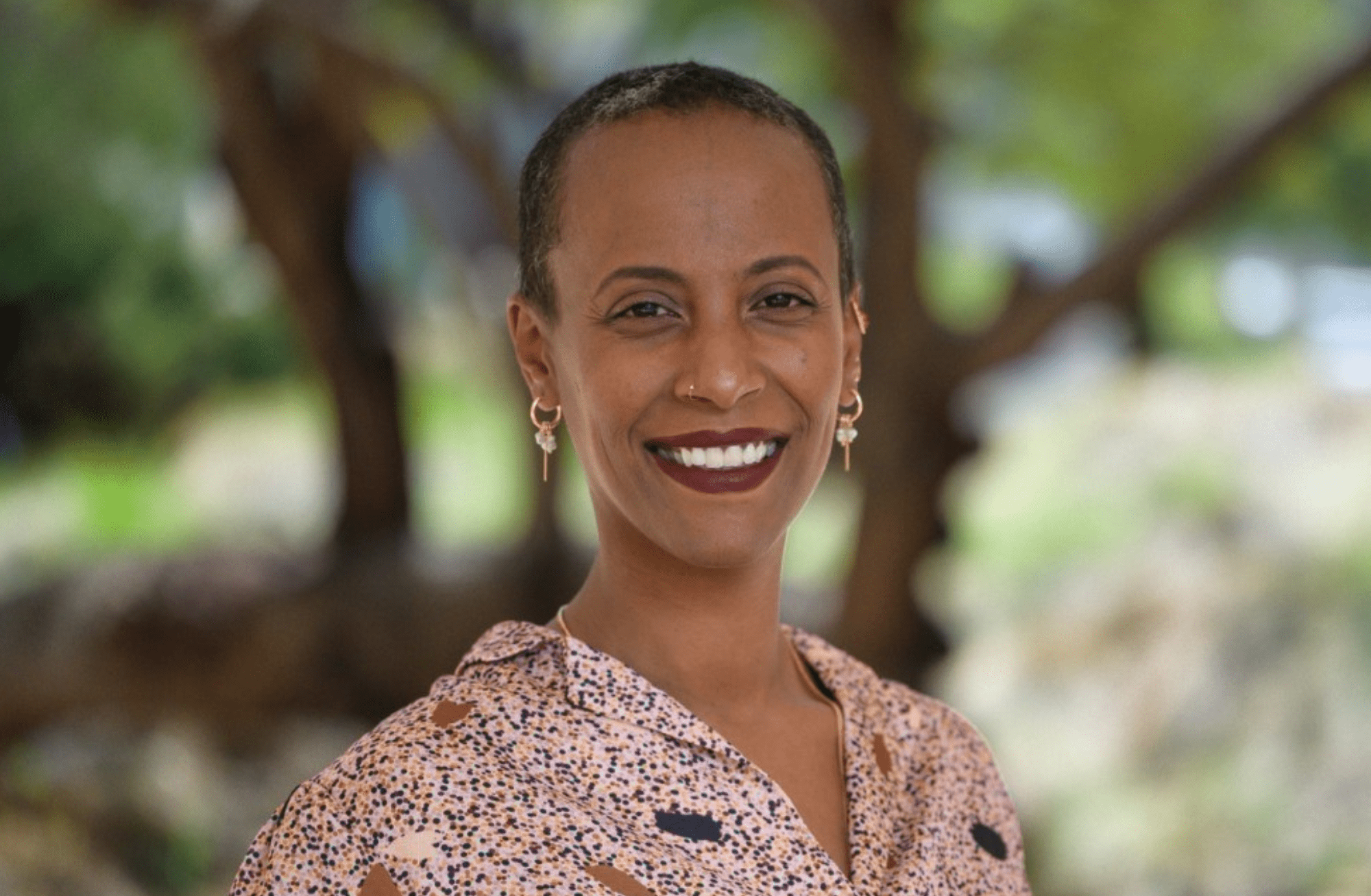2022 Featured Activists: EFRAT YERDAY
(Part TWO)

Meet Efrat Yerday, Chairwoman of the Association for Ethiopian Jews (read Part One of the profile here)
When Efrat moved from an upper middle-class homogeneous Tel Aviv neighborhood to Ashdod, she heard three languages besides Hebrew and English on her daughter’s first day in preschool.
“I get chills just thinking about it,” says Efrat. “It means my daughter can be in a diverse environment.”
This reality dovetails with Efrat’s vision of a socially just Israeli society.
“I want to see Israel growing due to the differences of its communities,” she says. “I want every group to delight in its existence.
“The people who dreamed of Zionism 200 years ago in Europe didn’t imagine me, nor Arabs, in their heads. They grew up in the context of European colonialism in Africa. They decided for everyone who came later. With this starting point, I’m always second class. And the Arabs are even lower. It’s a white reality that calls itself the only democracy in the Middle East.”
The Association of Ethiopian Jews’ (AEJ) mission is to fight racism against Ethiopians in Israel, but Efrat sees this issue as intricately tied with racism against Israeli Palestinians and Mizrachi Jews – and the occupation.
Institutional racism – in government, the police, and the education system — is part of Israel’s DNA, she says. And the AEJ is right there fighting racism in each of these contexts. Their input is invaluable. There are cases in which unconscious institutional racism leads to programs the authorities think are for the good of the community – for example, giving all pupils of Ethiopian origin extra help in school. Efrat points out that these decisions are based on skin colour and not on actual need. They don’t differentiate between newly-arrived immigrants and second and third-generation children.
“This is not only a waste of money but also hurts the self-esteem of Ethiopian pupils,” says Efrat.
What achievement is Efrat most proud of?
An AEJ achievement of which Efrat is most proud is their success in getting the state to stop special, separate programs for Ethiopian youth in schools, in the army, and in post-secondary education. Instead, they promote differential support based on students’ achievements and not their origin – a new policy that affects around 43,000 students in the education system.
She’s also proud of a court case the AEJ won that determined police must have a specific reason to ask someone to identify him or herself by means of an ID card. If there is no reasonable suspicion, the ID card request and inspection of personal information are prohibited.
“Usually, the people asked to identify themselves are black and brown people,” Efrat says. “The court accepted our petition and demanded that the police must have clear, measurable criteria when talking about ‘reasonable suspicion.’”
Efrat says the AEJ had no choice but to pull resources from its work on education to focus on police brutality, given the horrifying shootings, beatings and murders of young, unarmed Ethiopian men by police in the past decade.
What are Efrat’s goals for the future of AEJ?
If she had more resources, Efrat says she would establish a legal unit that would include independent research and a hotline to guide people (usually youth) in their interactions with police.
Efrat says the Ethiopian community leads the discourse on racism in Israel. In addition to participating in Ministry of Education round tables on how to discuss racism in schools, the AEJ was involved in the establishment of the Racism Eradication Unit in the Justice Ministry, originally created to fight racism against Ethiopians. The AEJ successfully fought to have it broaden its mandate.
“The racism problem is not an Ethiopian problem, it’s a problem of the state of Israel,” says Efrat. “The fact that we’re black and it’s easy to see us in a racist context doesn’t mean that Russians, Palestinians and Mizrachim – well more than half the population of Israel – don’t suffer from racism.”
As chair of the AEJ, Efrat is in regular contact with the staff, the board and other civil society organizations —in between working on her doctorate, other projects, and taking care of her daughter. She makes a point of nudging human rights organizations –which say first we have to end the occupation and then deal with other problems – to tackle the occupation and racism simultaneously.
Efrat has to deal with people who think the fact that Efrat is critical of the state of Israel is traitorous, she says. They feel she should only express gratitude. And even some Israeli Ethiopians admonish her: “Why don’t you talk about being Jewish? Why do you talk about civil rights?” they ask.
“They want me to always talk about the fact that we are Jewish,” says Efrat. “I don’t play that game. The fact that I’m a citizen of Israel means that I have rights.”
Efrat feels buoyed in her work by everyone here working to change society for the better. “Real change, deep change, change that will influence masses of people,” she says. “Giving tzedakah is great, but how do we make it so there won’t be so many poor people in Israel? Why do we have poor people? We’re a rich country!”
Efrat is grateful to NIFC for its support of the AEJ’s critical work and its understanding of how long social change takes. “We need your support as an independent organization, the only Ethiopian organization that does not get support from the government or semi-government foundations,” she says. “This enables us to advocate better, be committed to the community, and criticize policies unapologetically. Our main work is based on research, data, and advocacy – which have results only after years.”
Written and reported by Ruth Mason.
Photo by Danny Machlis.
Read Part One of Efrat’s profile
Get updates in your inbox
Sign up for our email newsletter and receive the latest news, invitations to events, and progress updates.
